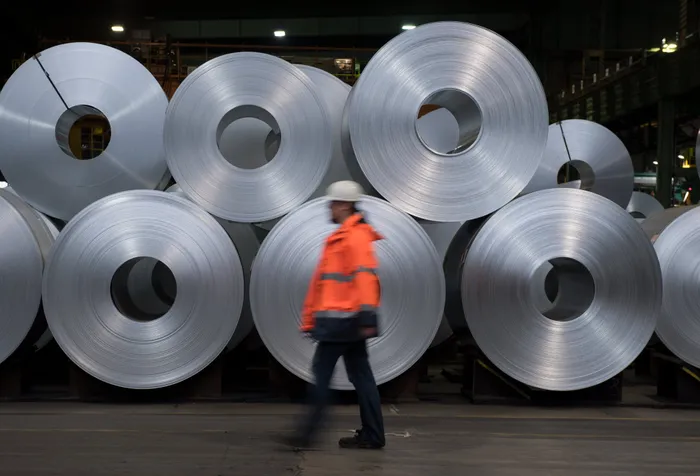
Industry players fear that ITAC’s move to invoke Article 21 of the General Agreement on Tariffs and Trade (GATT) — traditionally reserved for situations of war or terrorism — could be used as a blanket restriction on imports, even where no genuine security concerns exist.
Image: EPA
The International Trade Administration Commission of South Africa (ITAC) has come under fire from the steel import industry after proposing the use of national security provisions to tighten controls on steel imports.
Industry players fear that ITAC’s move to invoke Article 21 of the General Agreement on Tariffs and Trade (GATT) — traditionally reserved for situations of war or terrorism — could be used as a blanket restriction on imports, even where no genuine security concerns exist.
Presenting XA International Trade Advisors’ seventh Import Duty Investigation Report on Tuesday, CEO Donald Mackay warned that “import control is creeping in under the guise of national security,” raising suspicions that government may be attempting to bypass its GATT obligations.
"By invoking the national security concern, government is hoping to bypass the obligations under GATT, which say you can't impose import control unless it is to safeguard human, animal, and plant health," Mackay said.
"What is being proposed here is a general purpose import control, which would mean if I want to import a particular piece of steel unrelated to whether there is safety concern on that type, I will put import control. If ITAC does not issue a permit, you will not be allowed to import it. It's been proposed for the first time in the large steel review."
Mackay cautioned that if implemented in the steel sector, such controls could easily be expanded to other industries, such as poultry, effectively creating a new trade protection tool.
"It's a good example of a very convenient tool to use to protect domestic producers," Mackay said.
The XA report also revealed that 93.5% of all tariff codes have not been reviewed in more than 20 years. Many of these duties, Mackay noted, are “legacy tariffs” inherited when ITAC was established and have not been reassessed since.
Rebates, rather than outright tariff removals, have increasingly become the default mechanism when there is no domestic production. This system forces importers to regularly apply for permits, often leading to costly delays.
"This has important implications for the future. When materials you buy locally are now duty-free, you have to go to ITAC periodically, like every six or three months, depending on what the product is and you need a permit,"Mackay said.
"It takes time for permits to be issued. So without permits, you are not guaranteed duty reduction. ITAC could backdate the duty but they are not obliged to do that, and so that could turn into quite a lot of money."
Many of the tariffs under review affect intermediate products like steel, which are critical inputs for downstream industries. Higher costs on raw materials, Mackay argued, ripple through the manufacturing value chain, undermining competitiveness.
He cited the recent expiry of a rebate on titanium dioxide — a chemical with no current local production — as an example of policy misalignment.
"The permit cannot be issued. We have just seen that on a chemical titanium dioxide rebate that has now ended. We still don't have domestic production of the product," Mackay said.
"There is a factory that is being set up but you cannot get a rebate duty on that raw material, and so this is in the nub of what we have a concern about relating to replacing duty reduction."
The investigation also highlighted the ballooning number of rebates, with more than 80 temporary steel rebates currently in place. Mackay said the growing complexity of the system creates opportunities for abuse.
"When you replace the duty removal with the rebate, you add complete complexity. Steel for example, we now have incredibly complicated rebates," he said.
"Complexity opens the door for circumvention. In steel, we have seen interesting things as you increase the complexity you increase the probability that some will take a chance and not pay the correct duty."
BUSINESS REPORT